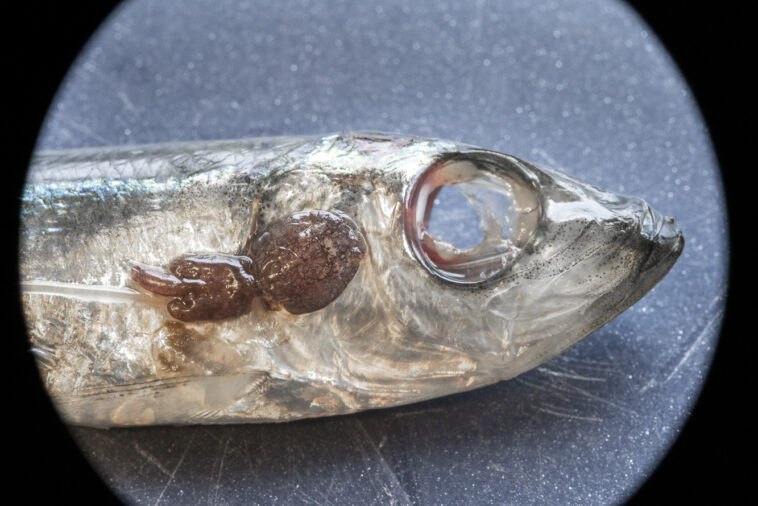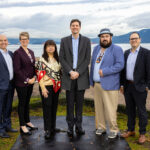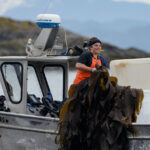An alarmingly high number of wild fish are being killed by salmon farms in BC, according to new data collected by Fisheries and Oceans Canada (DFO). 817,000 wild fish, predominantly herring, died in open net-pen Atlantic salmon farm operations in 2022 – almost five times the number reported in 2021 and over 20 times the number reported in 2020.
Organizations like Watershed Watch Salmon Society are very concerned about the surprising increase in dead fish, especially as open net pens are shuttering around BC, and the federal government is planning to close all fish farms by 2025.
Cermaq Canada, a Norwegian fish farming conglomerate owned by Mitsubishi, is responsible for a significant number of these herring deaths through their farming activities in Clayoquot Sound on western Vancouver Island.
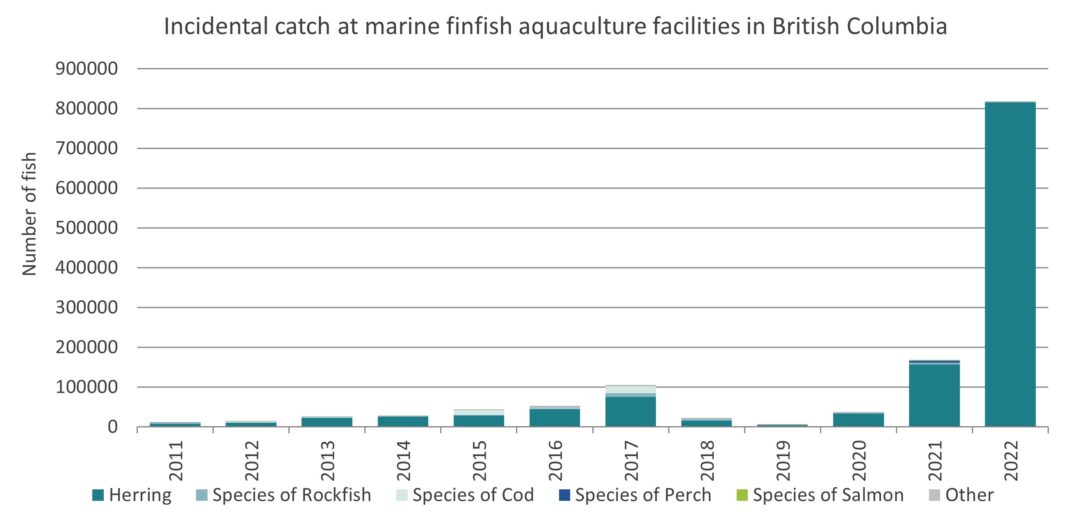
Lethal Hydrolicing
“The problem is getting worse because the pesticide the industry relied on for years to control parasite levels has become ineffective,” explained Stan Proboszcz, Senior Scientist with Watershed Watch. This resistance has led farms to seek new ways to control their parasites, relying on destructive practices that end up killing wild fish in unprecedented numbers.
Companies like Cermaq Canada are using a device called a ‘hydrolicer’– a barge that vacuums up farmed salmon and power washes the lice off of them. “Unfortunately, wild fish caught in the farms, like herring, are also sucked up, and many are killed,” said Proboszcz.
“We noticed small fish bubbling up to the surface beside the hydrolicer, so we scooped them up in a net. To our surprise, they were tiny juvenile herring, with their eyes blown out. It was really hard to witness that – I broke down and cried.”
Dan Lewis, Executive Director of Clayoquot Action
Dan Lewis, Executive Director of Clayoquot Action, saw firsthand how the hydrolicers decimate herring. In 2022, he and his team were on a routine monitoring trip to one of Cermaq’s fish farms near Tofino when they made a disturbing discovery near the hydrolicer.
“We noticed small fish bubbling up to the surface beside the hydrolicer, so we scooped them up in a net,” he said over email. “To our surprise, they were tiny juvenile herring with their eyes blown out. It was really hard to witness that – I broke down and cried.”
Lewis said he was shocked to see a couple hundred dead herring in the vicinity that day, but he was “horrified” to learn that 800,000 or so herring were killed last year.
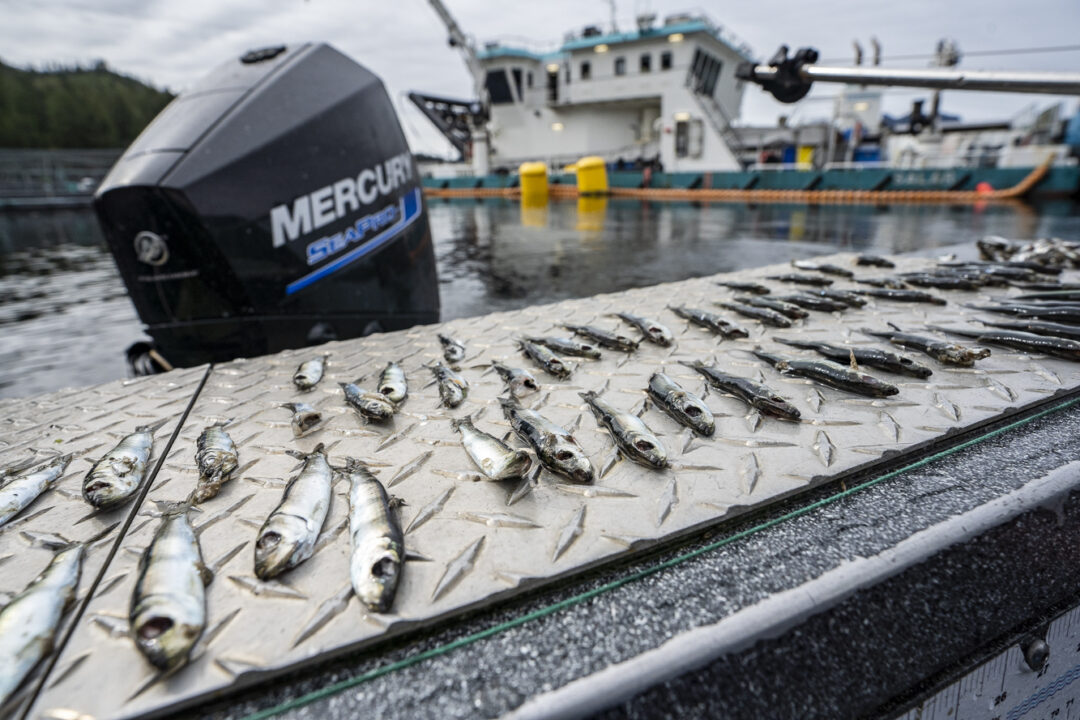
Herring Stocks at Risk
Herring are a keystone species in BC’s coastal food web. They facilitate the transfer of rich nutrients from plankton to marine animals like seals, salmon, humpbacks and grizzly bears.
“The numbers are disturbing because on the West Coast of Vancouver Island, there is no commercial herring fishery allowed, yet this industry is allowed to kill herring with no known limit or penalties.”
Stan Proboszcz, Senior Scientist with Watershed Watch
Commercial fisheries harvest the herring yearly in the Strait of Georgia and sell them to places like Japan, where herring roe is a delicacy. About 90% of the unused herring remains end up being repurposed for pet food and fish farm feed.
However, there have been recent calls for a moratorium on herring fishing as the stocks near collapse due to rampant overfishing and mismanagement. Four of BC’s five major herring populations, including Central Coast, Haida Gwaii, Prince Rupert, and West Coast Vancouver Island, are now closed to herring fishing.
“It is simply unacceptable for Cermaq to harm not just wild salmon, but the entire ecosystem with their industrial fish farming feedlots.”
Dan Lewis, Executive Director of Clayoquot Action
Speaking to the massive bycatch deaths, Proboszcz noted, “The numbers are disturbing because on the West Coast of Vancouver Island, there is no commercial herring fishery allowed, yet this industry is allowed to kill herring with no known limit or penalties.”
Lewis felt similarly concerned about the lack of consequences for the fishing conglomerates utilising the lethal hydrolicers. “It is simply unacceptable for Cermaq to harm not just wild salmon but the entire ecosystem with their industrial fish farming feedlots,” he said.
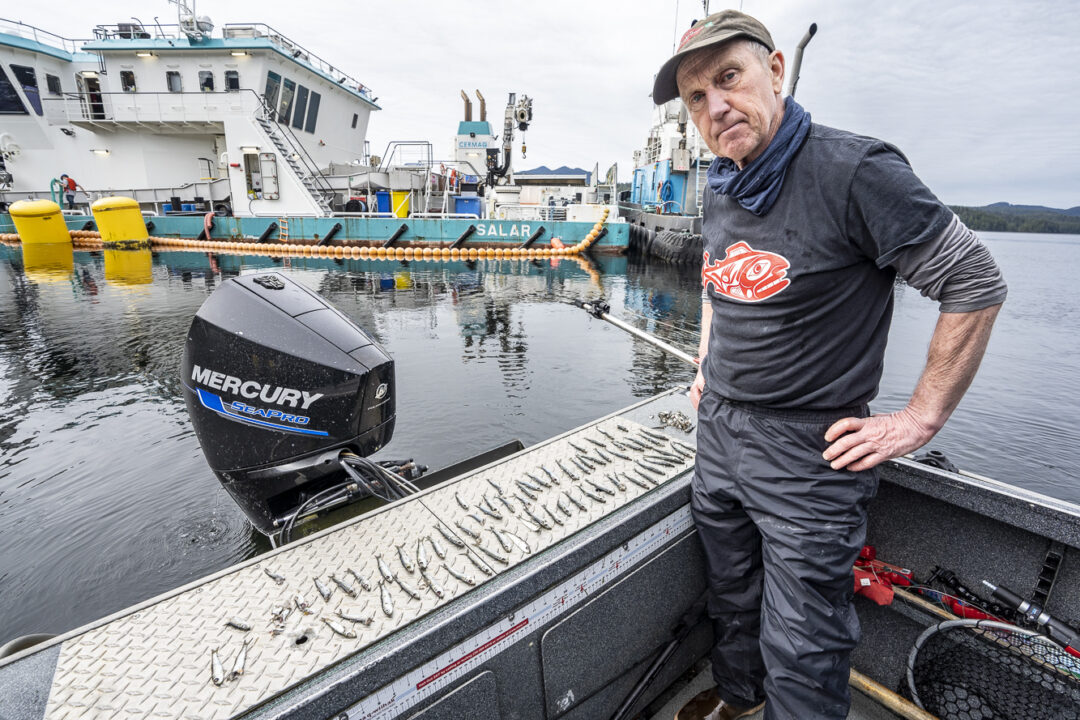
DFO Response
Alexandra Morton, a prominent marine biologist and activist, was able to access internal DFO documents through a Freedom of Information request that revealed that 130,000 herring were killed in Clayoquot Sound in March 2021 at Cermaq Canada salmon farms.
The documents also detailed the lax reporting requirements for companies like Cermaq, who did not immediately notify authorities of the herring deaths, and how DFO expected “significant negative attention” from the publishing of these mortality figures.
In a statement to The Times Colonist, Fisheries and Oceans reported that an investigation had taken place and changes were implemented to aquaculture licences “to ensure that sea lice treatments do not cause this type of impact on wild fish” and to increase reporting requirements.
A Cermaq representative responded that their farms are updating their operations and equipment to prevent herring from entering the farms, for example, by using new kinds of nets. They also said their bycatch numbers had been reduced in 2023, though they did not provide exact numbers.
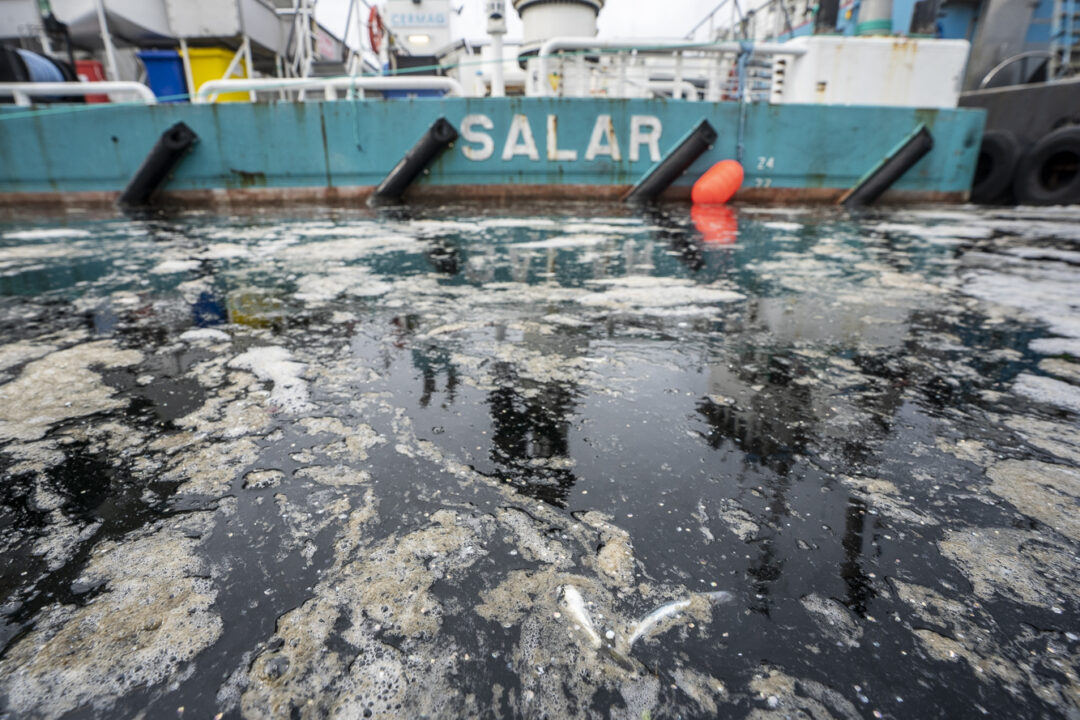
2025 Deadline
When asked about the startling herring figures in a recent press conference, Premier David Eby responded in favour of farm closures. “For the net-pen fish farms, I think it’s safe to say that the social licence for those that just sit in the ocean and cause the death of other fish has expired,” said Eby.
“In British Columbia, we know that those have to move into closed containment systems; the industry knows they have to move in that direction; the federal government knows they have to move in that direction,” the premier said. “We all just need to work together to ensure that that’s delivered.”
Both Lewis and Proboszcz said that they look forward to seeing the federal Fisheries Minister’s transition plan to remove salmon farms from BC waters by 2025 as promised. The plan was supposed to be published this past summer but has been delayed for additional consultations, according to DFO.


